Despite the headlines shouting at us to go sugar-free, biscuits, cakes and sweet treats remain a mainstay in c-stores.
The UK is a nation with a sweet tooth. Despite the headlines shouting at us to go sugar-free, everyday biscuits, cakes and sweet treats remain a mainstay in c-store aisles
“The UK biscuit and cake market is steadily on the rise,” points out Julien Lacrampe, trade marketing manager for Bahlsen. “Kantar data shows that Brits spent an extra £43.2m within the category in 2015 and the market is up 1.2% to £3.8bn.”
United Biscuits UK (UBUK) says that despite the challenges, the biscuit market has continued to show its strength. “The category has a proven track record and resilience that has seen growth for the past 10 years. The category is now worth upwards of £2.3bn,” says trade communications controller Hena Chandarana.
UBUK states that 99% of household cupboards stock biscuits, making them the nation’s most popular snack, while biscuits are also included in one in five grocery shopping baskets.
According to HIM, 32% of convenience store shoppers purchased biscuits in the past three months, while the average biscuit shopper’s basket size is 5.4, a lot fuller than the convenience average of 2.8. Meanwhile, the average wrapped biscuit shopper spends £9.77 against the convenience average of £6.13.
But despite the rosy picture, there has been a shift in consumer buying habits over the past few years – with budgets rather than waistlines the driver. More and more shoppers are looking for the best deals on offer to get the most for their money, with brand loyalty taking the hit.
Raj Aggarwal, who owns three Spar stores in Leicestershire and Sheffield, says sales of cakes and biscuits are performing well in his store, up 3-5% year on year. He adds: “Our shoppers are leaning more towards value and discounted products as opposed to the high end and premium ranges of biscuits. Our top-selling products are normally the ones on special offer and promotion, with big red labels on pricemarked packs (PMP). A common promotional offer is McVitie’s milk chocolate digestives which sell very well when they are on offer for just £1.”
Chaz Chahal, owner of Costcutter Kidderminster and Bromsgrove, has also noted that pricemarked packs are popular among biscuit and cake shoppers. “Our shelf ends and dump baskets are a good way of pushing the ranges we have on offer. This works really well with our £1 packs of Mr Kipling cakes.”
He has also witnessed strong demand for chocolate digestives. “Our most popular products are our PMPs of McVitie’s milk chocolate digestives and Hobnobs. They are flying off the shelves at the moment as people continue to search for a bargain.”
UBUK’s Chandarana says that McVitie’s milk chocolate digestives are a must-stock product, noting that value is of ‘utmost importance’ to consumers. “One of the key segments for the category is everyday treats, up 1% in value and 1% in volume year on year. McVitie’s milk chocolate digestives are the bestseller, currently worth more than £95m, growing 3% in value and 6% in volume.”
But despite the product’s success, many c-stores don’t stock it. Chandarana says: “Over the past year we have been advising and educating store owners on which products to stock to drive their biscuits sales as part of our Better Biscuits Better Business programme, which we launched in 2014. We identified that only about half of the independent retailers in the UK stocked McVitie’s milk chocolate digestives, despite it being the number-one best-selling line in biscuits. Over the past 12 months we have improved the availability of this product with it now appearing in two-thirds of small stores.
“Our 28-strong convenience field sales team has made more than 75,000 calls since its launch in July 2014, visiting 9,000 independent and symbol stores every four to eight weeks. In 2015 alone the independent stores visited by UB’s field sales team are seeing biscuit sales increase by more than 40% compared with stores not visited.”
On the go
In addition to stocking everyday biscuits, Chandarana believes that there is an opportunity for retailers to tap into the on-the-go trend. “Biscuits continue to represent a huge growth opportunity for all retailers, particularly in convenience,” she says.
“On the go is one occasion rising out of busy lifestyles and is a major growth driver across most snacking categories. There is a gap in the market due to significantly fewer on-the-go formats currently sold; currently 93% of biscuits are sold in take-home formats, versus just 7% for on-the-go packs. This compares with 14% for crisps and snacks and 12% for confectionery on the go.”
Burton’s Biscuit Company also recognises the potential. Head of category and shopper management, David Costello, says: “There’s a need for snacks that can be enjoyed on the move with an added emphasis on portion control. Biscuits are the most popular in-home snack, but less than 5% of traditional sweet biscuits are available in a single-serve out-of-home pack format.”
To remedy this Burton’s introduced a range of single-serve packs that includes 30g Maryland Gooeys twin snack pack and 40g bags of bite-size Maryland Choc Chip Cookies (PMP 39p) and plain packs (rrp 45p).
Border Biscuits has also been meeting demand for on the go with its Mini Pack range, which comprises two individually-wrapped biscuits. The firm claims the packs are ideal for lunchboxes, handbags and briefcases, with more than 26 million sold every year. A dark chocolate ginger variant is the latest addition to the portfolio.
Border Biscuits brand and marketing manager Lesley Ann Gray says: “We hope that the addition of our best-selling variety will further boost sales of Mini Packs, which continue to go from strength to strength, reporting a 21% increase in volume and 20% increase in value. We have invested in the Mini Pack range with a trade advertising campaign to ensure high visibility and awareness of the product, making it a must-stock range.”
New product development is a major sales driver within biscuits and cakes, notes Raj. “Every time we stock new products in the cakes and biscuits category, they sell really well. New flavours, new packaging and promotions on latest releases all contribute to a growth in sales,” he says.
McVitie’s rolls out Nibbles
Bite-sized chocolate balls of McVitie’s digestive biscuits to eat on the go are the latest innovation from United Biscuits for 2016.
New McVitie’s Digestives Nibbles come in a re-sealable pouch in four variants: milk chocolate; dark chocolate; double chocolate; and caramel.
Designed for sharing at home in the evening with friends and family, the range will be available in a 120g pouch (£1.89 rrp), with a smaller £1 pricemarked variant due later this year.
The range will be supported by a £4m media campaign. Significant investment has also been made in in-store marketing, with POS displays, clip strips and gondola end toppers available for convenience store retailers.
Sarah Heynen, marketing director of sweet biscuits at UBUK, says: “The launch of McVitie’s Digestives Nibbles is set to break new ground in sweet biscuits. This is an exciting proposition for the market, targeting a new evening sharing treat occasion for biscuits.”
Healthier biscuits
While a growing number of shoppers are looking to eat on the go, there is also a growing number who want more control over the amount of cakes and biscuits they eat.
Chandarana says: “Health and wellbeing has never been higher on the agenda. Our clear message is that all snacks should be enjoyed as part of a healthy balanced diet and we are committed to helping consumers make informed and wholesome choices, with a website – www.123healthybalance.com – providing nutritional information on our products and advice on healthy diets and activity.”
Clive Sheppard, who owns nine Spar stores in the south west of England, agrees that many consumers are aspiring towards healthier lifestyles. “Consumers are becoming a lot more aware of the ingredients in their food, and selective when it comes to purchasing snacks and sweet products. They are taking note of how much sugar is in the products, which has had an effect on consumer trends in the category.
“I also think there are more innovative products that allow the individual to make up their mind on how much they want to eat, such as ranges of re-sealable tubs of cakes and biscuits.”
Healthier biscuit ranges could add incremental sales to the category, according to Susan Nash, trade communications manager at Mondelez International, who says Belvita is the market-leading healthy biscuit brand, currently worth £66m and showing 15% growth. Nash says: “Belvita has six million buyers in the UK and has a high repeat rate of 60%.”
Mondelez has just rolled out two new Belvita products available for convenience retailers, Belvita Tops (250g, rrp £2.79), Belvita breakfast honey and nut, duo crunch strawberry and crunchy hazelnut (50g, rrp 60p) and Belvita breakfast milk & cereals and honey & nut (150g rrp £1.49).
McVitie’s has also addressed the breakfast biscuit market by relaunching the McVitie’s Breakfast range accompanied by a TV campaign. McVitie’s Breakfast Oaty Breaks are baked with porridge oats with fibre and energy-releasing vitamins B, vitamin D and iron, with a new ‘snappable’ format and available in a choice of two flavours; Golden Syrup and Raisin & Cinnamon.
McVitie’s Breakfast Fruit & Oat Bakes are described as wholesome wheatmeal and oat biscuits with a fruit filling, and are available in apple and blueberry flavours, packaged in portioned sizes to eat on the go.
Scottish manufacturer Nairn’s also has a range of better-for-you biscuits. Nairn’s Oat Biscuits contain 40% less sugar than the average sweet biscuit. “Given rising concerns over high intakes of free sugars (those added to foods), particularly in relation to dental cavities and low intakes of dietary fibre, new biscuit options lower in sugar and higher in fibre could go some way towards addressing these issues without losing the enjoyment factor,” says head of marketing Emma Heath.
But it’s not just biscuits that are offering healthier options. Mr Kipling has created an Exceedingly Good range which aims to appeal to people focused on a healthier lifestyle.
Premier Foods’ new range of golden oaty cakes contains wholesome ingredients such as cranberry, orange and coconut. The company says the Exceedingly Good range aims to appeal to an increasing number of people who focus on a healthier lifestyle and prefer natural ‘better for you’ options.
The new range contains wholesome ingredients and hopes the products will drive incremental usage occasions for the category, by tapping into occasions outside of the traditional cake-eating times such as morning and evening snacks.
The Mr Kipling Exceedingly Good range comes in two flavours: cranberry & orange oat slices; and dark chocolate & coconut oat slices. They contain less than 140 calories a slice, and come in packs of four, in the popular individually-wrapped snack pack format (rrp £1.49).
Mr Kipling’s innovation controller Holly Bristow says: “We believe there is real potential for ‘better-for-you’ cake, as this will attract new consumers and open up new consumption occasions.”
Be part of The American dream
Unusual product variants are a great way for retailers to excite customers and drive impulse sales.
UK wholesaler Innovative Bites UK has been bringing popular US products in confectionery, cakes and biscuits to Europe over the past six years, offering retailers the chance to add unique lines to the category.
Vishal Madhu, founder and CEO of Innovative Bites UK wholesale company, says: “The UK American treats market has grown by more than 20% year on year over the past four years and is now worth an estimated £38m. For independent retailers who want to try something unique and different and stay one step ahead of the bigger supermarkets and discount retailers, then American treats is a great way to offer consumers something new, driving the market for experimental Brits as well as impulse shoppers.
“The products perform best when they are stocked on their own shelf, so they stand out and get the attention they deserve, while driving sales of accompanying biscuits and cakes in the category.”
Popular cake and biscuit imports include American cake treat Twinkies, as well as innovative flavours of US biscuit giant Oreo, including the variants mint, peanut butter, double chocolate, golden Oreo and Oreo heads or tails.
Golden rules
Whether it’s a better for you bite, or one to fill a hole on the go, suppliers point out that retailers need to ensure they have the right range of biscuits to cater to different shopper missions.
Susan Nash recommends that 20% of the range should be dedicated to on-the-go products. She also says retailers should locate the on-the-go range in a highly visible location, such as near hot drinks, to tap into impulse opportunities.
Bahlsen’s Lacrampe says convenience stores should opt for on-the–go counter displays to encourage impulse sales. “Another additional tip is to stock products near meal deal offers to encourage further impulse buys, targeting lunch-time consumers,” he points out.
Costello adds: “Positioning is key to maximising sales within the food-to-go space. With 86% of biscuits consumed with a drink, it’s important that convenience retailers locate on-the-go biscuits adjacent to sandwiches and cold drinks to take advantage of the lunchtime trade, as well as alongside hot drink stations as biscuits complement these really well. One-third of all biscuits are bought on impulse in the convenience channel. If retailers can get the right range, merchandised and promoted in the right way, we estimate that independent retailers could share in biscuit sales increases of more than £25m in the next two years.”
Raj sums up: “My advice is to stock a good range of premium and value products as well as the latest innovations in the market to give customers the optimum choice. Where special offers are concerned it is important that prices are clearly displayed.”
By following these guidelines, perhaps retailers will be able to have their cake and eat it, too.





















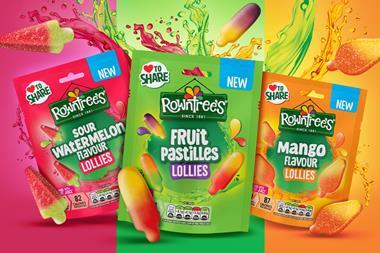
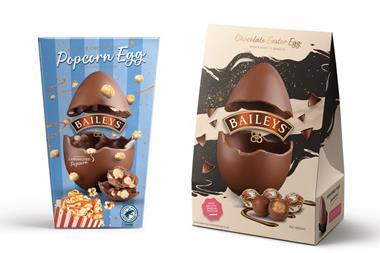
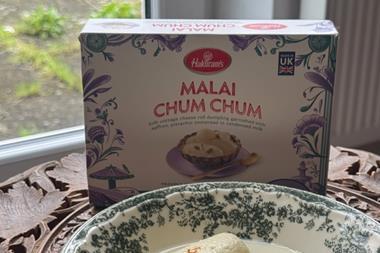
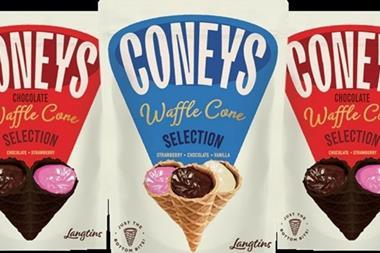
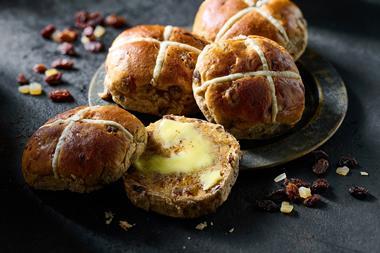
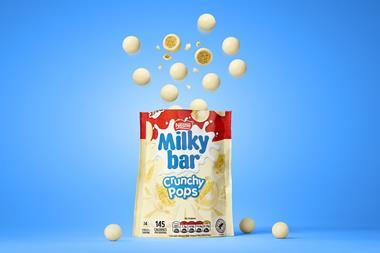
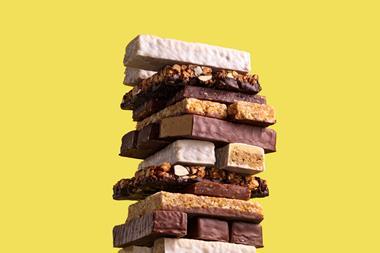

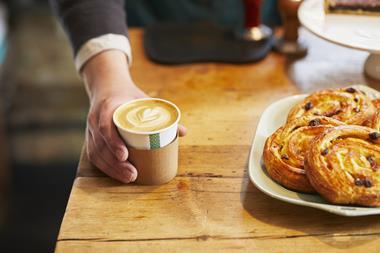
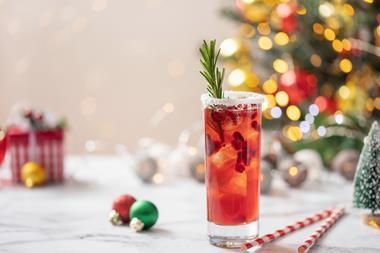


No comments yet